Politics
2027: Divergent opinions emerge over Tinubu, Atiku, Obi, Kwankwaso’s fate
Published
2 months agoon
By
Ekwutos Blog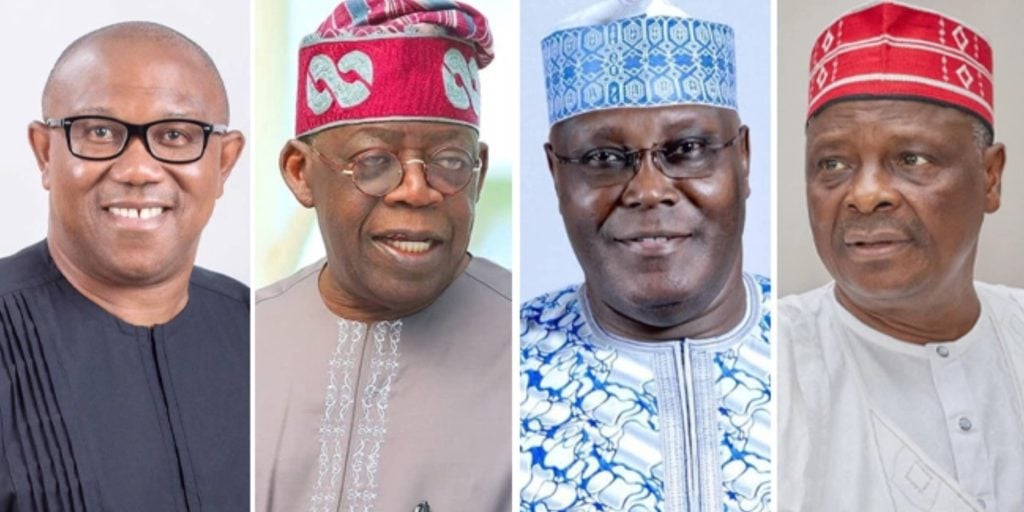
As Nigeria moves closer to the 2027 presidential election, political discussions and strategic maneuverings are intensifying. Key figures at the center of these developments include President Bola Ahmed Tinubu and prominent opposition leaders: Atiku Abubakar, Peter Obi, and Rabiu Kwankwaso.
Opposition’s strategic discussions
Following the 2023 elections, where a divided opposition failed to unseat Tinubu, there is a growing realization of the need for unity.
Ibrahim Abdullahi, the Deputy National Publicity Secretary of the Peoples Democratic Party (PDP), previously noted that had the party managed internal conflicts better, Obi and Kwankwaso might have remained within the PDP fold—potentially altering the election outcome.
He emphasized ongoing discussions aimed at forming a formidable alliance to challenge the ruling All Progressives Congress (APC) in 2027.
However, not all analysts are optimistic about the opposition’s chances.
Activist lawyer, Deji Adeyanju cautioned Atiku, Obi, and Kwankwaso against investing in another presidential bid, arguing that even a united opposition might struggle against Tinubu’s political influence and Nigeria’s electoral system.
Calls for broader alliances
Beyond Atiku, Obi, and Kwankwaso, some voices are advocating a more expansive opposition coalition. Salihu Lukman, a former National Vice Chairman (North-West) of the APC, has urged leaders such as former Vice President, Yemi Osinbajo, Rotimi Amaechi, Kayode Fayemi, and Nasir El-Rufai to align with the opposition. He stressed that setting aside personal ambitions in favor of building a strong political party is the only way to effectively challenge the APC’s dominance.
The ruling party’s stance
Within the APC, there is both confidence and caution regarding the 2027 elections. While the party acknowledges the opposition’s potential to regroup, it remains convinced that President Tinubu’s administration will continue to deliver on its promises, solidifying public support.
Kano APC Publicity Secretary Ahmed S. Aruwa dismissed concerns about Tinubu’s re-election chances. According to him, Atiku Abubakar’s political career is nearing its end. He also dismissed Kwankwaso’s relevance, arguing that his recent meeting with former Minister, Rauf Aregbesola is merely a search for political survival.
“Kwankwaso has no political party at the moment,” Aruwa stated.
“His popularity in the North is overrated and cannot compare to Tinubu’s economic reforms and war against insecurity.”
What analysts are saying ahead of 2027
Opinions on the likely outcome of the 2027 elections remain divided.
Political analyst, Abdullahi Abba, speaking to Ekwutosblog , leaned towards an Atiku presidency. He argued that Atiku’s long-standing political career has helped him build a vast network of supporters and allies across Nigeria.
“His previous roles, including serving as Vice President, have solidified his connections within the party and the broader political landscape,” Abba said.
He also noted that Atiku’s history of forming cross-regional and cross-ethnic alliances strengthens his appeal as a unifying candidate. However, he warned that internal party dynamics could pose a challenge.
“The ambitions of other influential figures, such as Governors Bala Mohammed and Seyi Makinde, may lead to factionalism within the PDP. Managing these dynamics will be crucial for Atiku’s success.”
Dr. Sa’id Dukawa, a political scientist at Bayero University Kano took a broader view, stating that the 2027 election will be an all-out battle with all major players fully engaged.
“Cross-carpeting and political alliances are at an all-time high. Politicians are preparing early, and 2027 will be a game-changer,” Dukawa remarked.
Public sentiment and the road ahead
As political maneuvering intensifies, Nigerians remain divided in their expectations. Many citizens continue to demand a government that can effectively tackle insecurity, economic instability, and corruption.
He echoed growing public sentiment, saying that it may be difficult for Tinubu to retain power unless significant improvements are seen.
“As alliances form and strategies unfold, Nigerians remain the ultimate decision-makers. If they do not see the change they voted for, they will replace Tinubu’s government with a more promising candidate in 2027.”
With the political terrain shifting rapidly, the coming years promise intense activity as both the ruling party and the oppositions position themselves for the decisive battle ahead.
Umar Ibrahim Umar, Executive Director of War Against Injustice, believes economic hardship caused by Tinubu’s reforms may jeopardize his chances in 2027.
“The economic reforms have caused more hardship than relief Subsequent policies have not been any friendlier,” Umar said.
2027: Who will Northerners support?
Many Northerners are yet to decide who will get their votes—if they choose to vote at all.
A few Keke Napep riders expressed frustration over the rising cost of petrol, which was the first major economic policy Nigerians criticized after Tinubu’s May 29 inauguration.
Some of them, speaking to Ekwutosblog in Kano complained bitterly about how they had to abandon their higher-purchase agreements because they could no longer meet their daily targets.
One rider laments, “Now a liter of petrol goes for over ₦1,000, and it doesn’t even last.”
Another added, “We are looking for food. Who has time to vote?”
Despite intensified campaigns by Tinubu’s cabinet members and APC bigwigs—along with reports of crashing food prices in some markets in Northern Nigeria, many Nigerians remain skeptical about re-electing the current government.
The current uncertainty leaves them considering alternatives from either the PDP, NNPP, or even the LP.

You may like
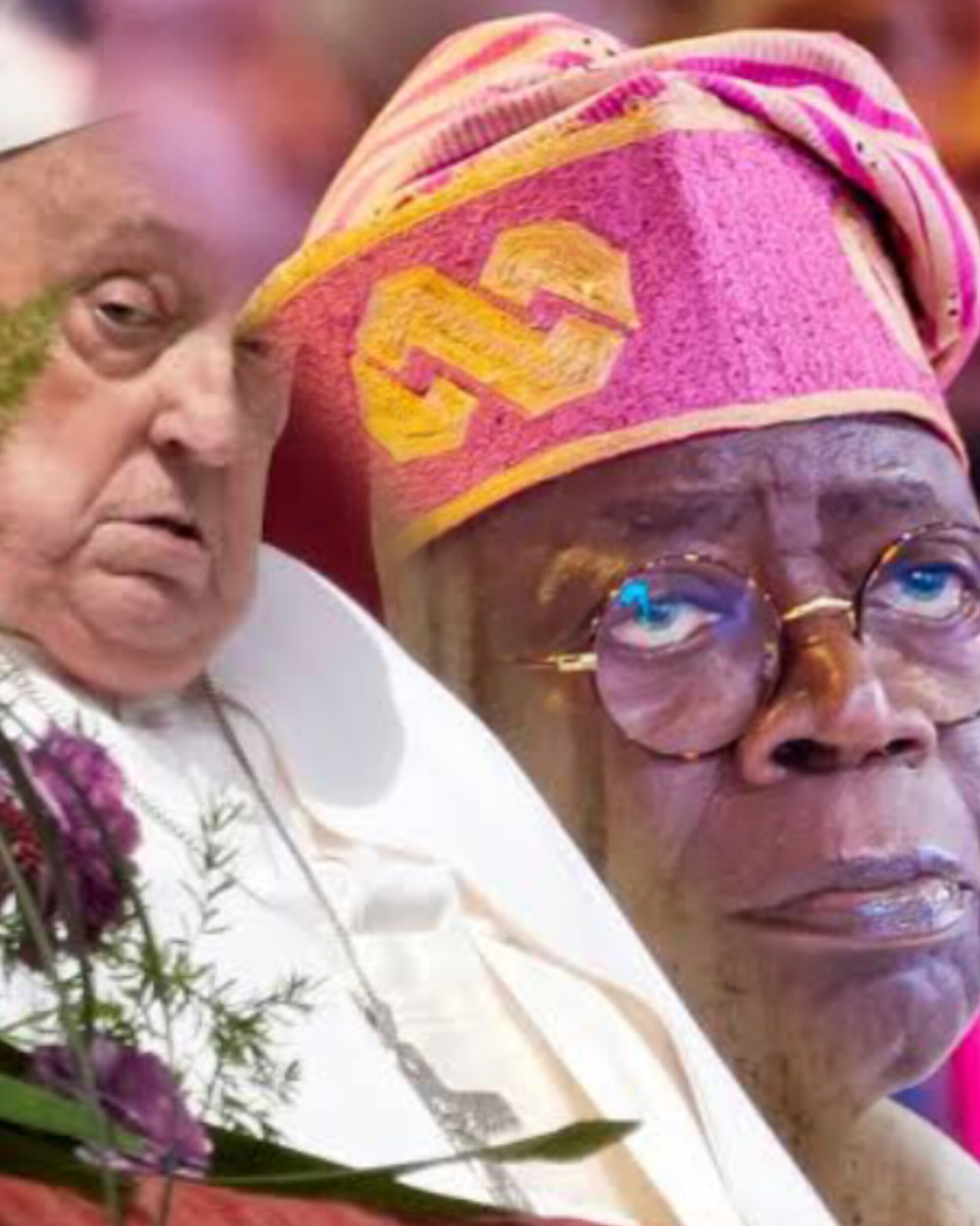

PRESIDENT TINUBU’S STATEMENT ON THE PASSING OF HIS HOLINESS POPE FRANCIS
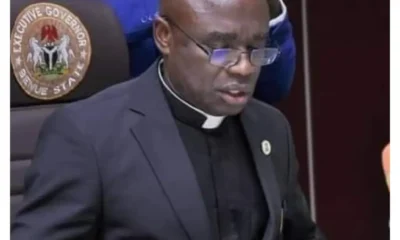

Benue was bleeding, now it’s healing – Governor Alia


NSCDC Foiled Attack on Church in Plateau State
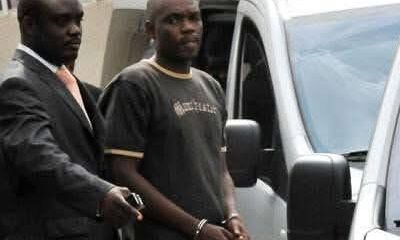

JUST IN: Suspected Bomb Explosion Reportedly Rocks Maiduguri Prison Cell Holding Convicted OCTOBER Bomber, Charles Okah


US: ‘It’s time for the virus mind to die’ – Elon Musk slams transgender Americans
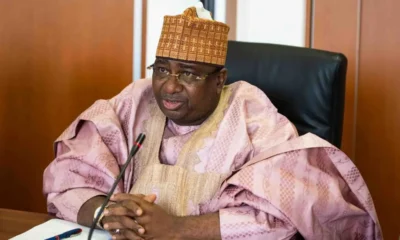

Kebbi: Era of handpicking LG chairmen is over – Gov Idris
Politics
Benue was bleeding, now it’s healing – Governor Alia
Published
6 hours agoon
April 21, 2025By
Ekwutos Blog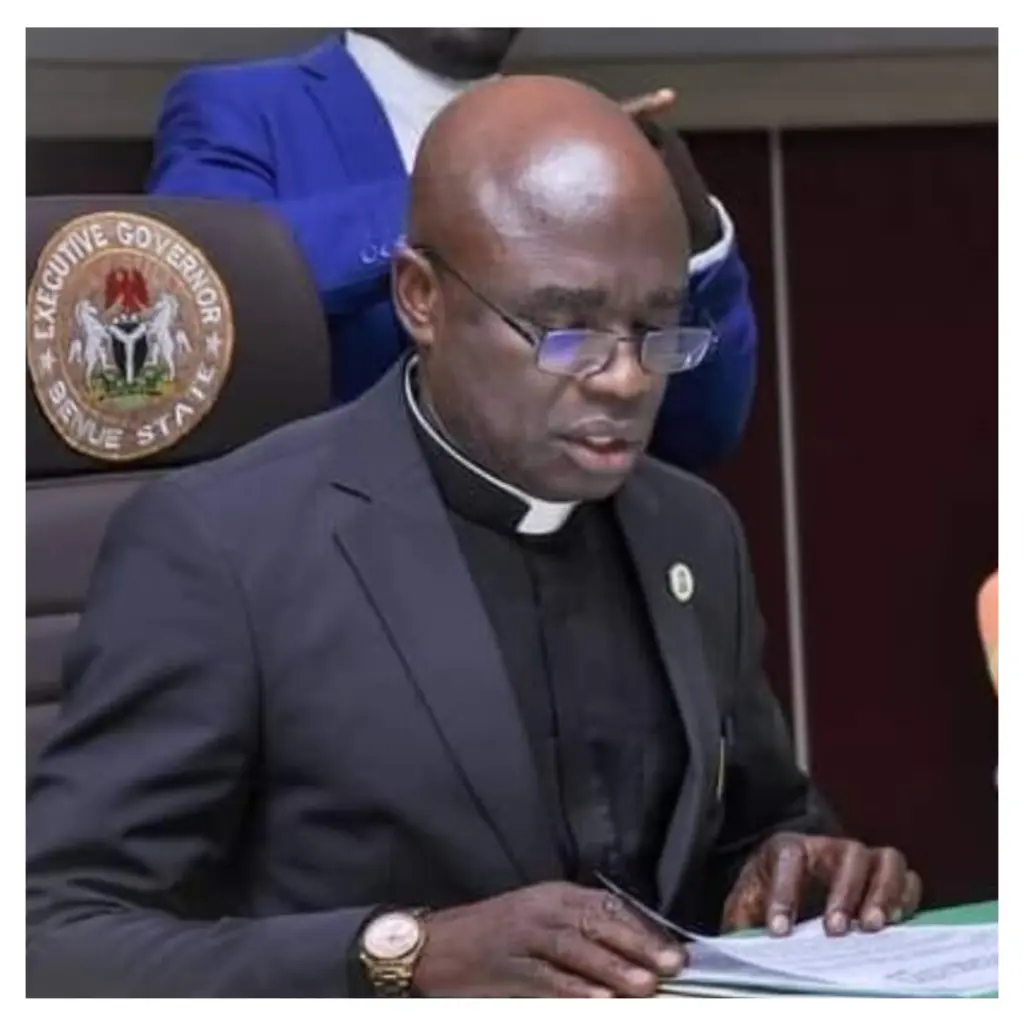
Benue State Governor, Hyacinth Alia, has declared that the state, once overwhelmed by insecurity and mismanagement, is now on a path to healing under his leadership.
Speaking in an exclusive interview with Vanguard, Alia reflected on his transition from Catholic priesthood to politics, his administration’s efforts in tackling insecurity, and his unique approach to fiscal discipline.
As he marks 35 years in the priesthood this July, Alia revealed that his decision to enter politics stemmed from a deep understanding of the challenges facing Benue.
“I’ve spent my life serving the people of Benue in the suburbs, understanding their struggles. It wasn’t difficult for me to transition because I was already working to fix problems as a priest,” he said.
Alia said his transition into politics was driven by an urgent desire to bring change. “As a priest, you spend your time supporting people, solving environmental and family problems. Politics was just an extension of that, although with the added responsibility of navigating a complex political environment,” he added.
On the issue of insecurity, the governor delved into the historical context, explaining that Benue’s security challenges are linked to broader regional dynamics. He noted that Benue, like other parts of Nigeria, is facing a deepening crisis caused by the ECOWAS transhumance protocol, which allowed for cross-border grazing.
“When we were growing up, there were no issues with herders. But after the ECOWAS protocol was adopted, things drastically changed,” he explained.
Alia disclosed that as of June 2024, about 500,000 people from 17 of the state’s 23 local governments were displaced due to violence.
“Our people are primarily farmers, but we’ve seen the land grab that accompanies these attacks. This is no longer pastoralism – it is a calculated destabilization,” he said.
He also emphasized that despite the challenges, his government is working to tackle displacement through a three-pronged solution: temporary shelter, integration, and relocation back to ancestral lands.
Alia urged the Federal Government to reconsider Nigeria’s participation in the ECOWAS protocol, calling for a review of the policy that has contributed to insecurity. “If the Federal Government revisits this protocol, it could make a huge difference. We need to fix our internal security first,” he said.
In addressing the state’s finances, Governor Alia revealed his commitment to fiscal transparency, pointing to the consistent payment of salaries on the 25th of each month.
“Before I came in, civil servants and pensioners went without their pay. I inherited N359 billion in debt, but we found a way to make sure workers get their pay on time,” he said, adding that he had implemented a new standard where salaries are paid even on public holidays or weekends.
Despite facing criticism from some quarters, particularly among the political elite, Alia stood firm in his belief that timely salary payments were a necessary reform. “People used to take the fish without learning to fish. Now, they’re learning to be self-reliant, and it’s creating some enemies,” he said.
The governor also reflected on his relationships with the judiciary and his political party, stressing that his administration is committed to transparency and the rule of law. “There have been no issues with the judiciary. We followed due process with the NJC, and any disputes were addressed professionally,” Alia explained.
As he looks towards the future, the governor expressed confidence that his administration’s approach to governance will continue to transform Benue. “It’s about proper planning, strategy, and execution. We’ve brought a new thinking to Benue, and the people are beginning to see the difference,” he concluded.
Politics
Kebbi: Era of handpicking LG chairmen is over – Gov Idris
Published
9 hours agoon
April 21, 2025By
Ekwutos Blog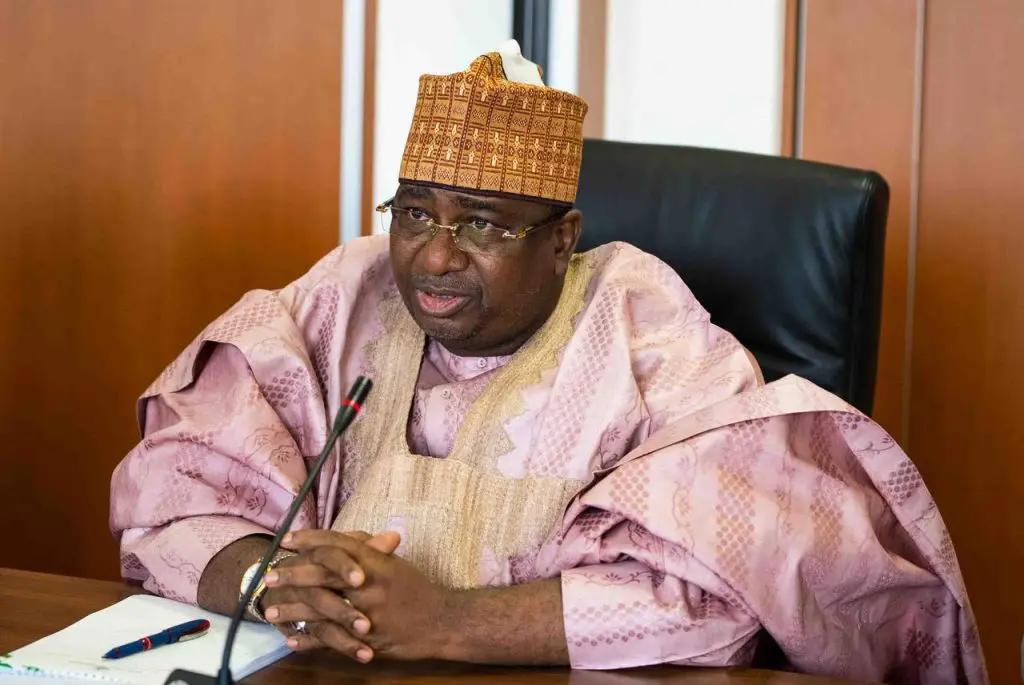
Kebbi State Governor, Nasir Idris, has declared an end to the era of handpicking local government chairmen in the state, affirming that those currently holding office were genuinely chosen by the people.
The governor made this known while addressing journalists on Sunday, shortly after a consultative meeting with the 21 local government chairmen, their deputies, and 225 councilors at the Government House, Birnin Kebbi.
Expressing satisfaction with their performance so far, Governor Idris praised the council officials for their unwavering loyalty and support to his administration.
“I am happy about their performance. The chairmen have shown unalloyed loyalty and have justified the confidence reposed in them. Most importantly, they are the true choices of their people, and the era of handpicking candidates is gone for good in Kebbi State,” he declared.
The governor explained that the essence of the meeting was to engage directly with local government leaders, understand the issues affecting grassroots communities, and jointly chart a course for accelerated development.
“Sessions like this allow us to rub minds, identify challenges, and find practical solutions that will fast-track development in our communities,” he noted.
Governor Idris also reaffirmed his administration’s commitment to inclusive governance through continuous consultation with key stakeholders, aimed at improving the socioeconomic wellbeing of the people.
The meeting was led by the state chairman of the Association of Local Governments of Nigeria (ALGON), Alhaji Muhammad Dahiru Nayaya Ambursa, who doubles as chairman of Birnin Kebbi Local Government.
Also in attendance were the Kebbi State APC chairman, Abubakar Kana Zuru; Secretary to the State Government, Yakubu Bala Tafida; Commissioner for Local Government and Chieftaincy Affairs, Garba Umar Dutsinmari; and the Accountant-General, Muhammad Bello Ibrahim Nahaliku.
Politics
2027: Some PDP Governors Set to Defect to APC, Back Tinubu’s Re-election Bid
Published
1 day agoon
April 20, 2025By
Ekwutos Blog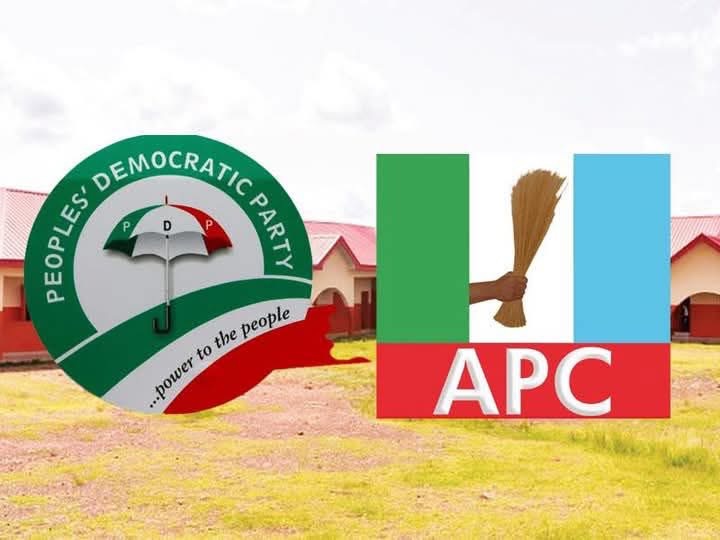
At least three PDP governors are contemplating defection to APC, signaling significant shifts within the opposition ahead of 2027 elections.
In a major realignment of political forces ahead of the 2027 general election, at least three to four governors of the Peoples Democratic Party (PDP) are set to defect to the ruling All Progressives Congress (APC) and support the second term push of President Bola Tinubu.
This is in response to political rumblings in many northern states, which are threatening withdrawal of support for the incumbent President’s re-elections. Governor Umo Eno of Akwa Ibom State last Friday, at a public event, confirmed support for President Tinubu saying in his state, there’s no more party politics as they are all in a “unity party” of PDP and APC.
However, Governor Sheriff Oborevwori of Delta State, Governor Peter Mbah of Enugu State and the suspended Governor of Rivers State, Siminalayi Fubara, are weighing options of support for Tinubu’s second term whilst not changing or decamping from the opposition PDP.
With Governor Eno’s open support for Tinubu’s reelection, THISDAY gathered that the entire machinery of the PDP in the state will be deployed for APC’s victory and also to facilitate the return of the President of the Senate, Senator Godswill Akpabio to the upper chamber as president in 2027.
The planned defection or realignment of more PDP governors, it was learnt, has brightened APC and Tinubu’s chances in the 2027 general election, especially with threats in the North to withdraw support.
Tinubu won 62 per cent of his votes in the 19 northern states in the 2023 presidential election.
Investigation revealed that the defection talks with many PDP governors have reached advanced stages.
However, certain conditions are said to be attached to the proposed deals to make the deals a win-win for the negotiating parties.
THISDAY gathered that President Tinubu had also met with some APC senators as a prelude to the governors’ defections and informed them of the development.
A competent source privy to the negotiations told THISDAY that Governor Eno agreed to join the APC because he also feared his re-election might be truncated and wanted to secure it ahead of 2027.
It was also gathered that Akpabio is coordinating talks for his defection.
Uno was also said to be determined to use his defection to get the Economic and Financial Crimes Commission (EFCC), off the back of his benefactor and predecessor, Udom Emmanuel, who is currently under the watch of the agency.
To also prepare the minds of his colleague-governors in the PDP, Eno was alleged to have refused to host PDP governors in his state.
To reciprocate Eno’s endorsement of Tinubu, the Senate President, Akpabio, pledged to support the governor for a second term.
Akpabio, represented by the Chairperson of the National Assembly Service Commission, Saviour Enyiekere, gave the endorsement in his Goodwill message at a public lecture organised by the Faculty of Social Science, University of Uyo, on Tuesday.
Akpabio’s representative said: “Sir, for doing that (endorsing Tinubu), I am a member of the All Progressives Congress. I am speaking for the elders and to tell you we are also going to support you for a second term.”
“We will support you in whatever aspiration you have. Yesterday, you broke a record by being the first opposition governor to declare support for a second term bid of President Tinubu,” he added.
Akpabio had in January 2024, at a meeting of the APC leaders in Uyo, the state capital, said it was abnormal for him as Senate president not to have the APC produce the governor of his state in 2027.
Governor Oborevwori, it was learnt, is also weighing options on whether to remain in the PDP and back Tinubu’s reelection or quit the opposition party.
He is said to be waiting for the other party to sign its part of the deal for him to make a commitment.
The suspended governor Fubara is also weighing the options on whether to back Tinubu whilst retaining his membership of the PDP or defect to the APC.
THISDAY also gathered that Fubara’s initial plan to defect to the APC was frustrated by the political crisis that engulfed his state.
His plans to join the APC were believed to have been stalled largely due to President Tinubu’s displeasure with his handling of the political crisis in his state and partly by his estranged benefactor, the Minister of the Federal Capital Territory (FCT), Nyesom Wike’s effective grip on the APC structure in the state.
For the embattled governor, the decision to join the ruling APC was to secure his mandate against the subterranean moves by his political opponents to remove him from office or deny him a second term ticket.
He was said to have rejected the PDP governors’ resolution to challenge the state of emergency declared in his state in court due to his plan to reconcile with his political enemies and possibly defect to the APC.
Though the PDP governors moved ahead with the court action, he was said to have told his colleagues pointblank that he would not be a party to any move that could jeopardise his four years mandate.
THISDAY gathered that it was not a mere coincidence that the three governors were absent at the recent meeting of the PDP governors held in Ibadan, Oyo State.
Delta and Akwa Ibom states’ governors sent their deputies to the meeting since they had begun a gradual withdrawal from the PDP, while Fubara did not send any representative.
On his part, Governor Mbah, who is known to be a friend of the Presidency, is also weighing the options ahead of 2027.
The governor, a committed member of the PDP, is considering joining the APC to support Tinubu’s reelection and secure his second term or remaining in the PDP and work for Tinubu’s victory.
The pro-Tinubu PDP governors were said to be behind the decision of the PDP governors not to support any coalition with other parties to sack the president in 2027.
THISDAY also learnt that the planned defections have raised concerns in the PDP as the stakeholders and leaders of the party are considering the grave implications for a party that is trying to rebuild itself.
They were of the view that if this happened, the opposition party might be badly affected in the 2027 national elections, as this could deal a deadly blow to them and signal a walkover for President Tinubu.
Following this development, PDP stalwarts held the view that the party leadership must meet as soon as possible to weigh the options before them, particularly on how to stop the three governors from leaving the party.
However, those who believe that the deal has not been totally sealed hinged their position on the fact that the governors are aware that should the coalition sail through and a viable candidate from the South-south emerges, then they would have struck a bad deal, since the zone is believed to dislike the APC and might vote against it.
But with the in-fighting in the PDP over the proposed coalition to wrest power from Tinubu and the APC, pundits are not certain if the majority of the PDP leaders understood the full weight of the situation at hand.
The PDP leaders’ handling of the development would define the future of the party to a large extent.
Meanwhile, as a precursor to Tinubu’s bid to get the north to back him in 2027, THISDAY further learnt of a meeting this weekend in London between the president and a major opposition figure from Kano State.
The meeting, said to have been put together by Akpabio, also involves an influential monarch from the state.
The meeting aims to tackle the North’s perceived opposition to the president.
A second meeting involving a former president, who is expected to be in London, is being packaged as part of President Tinubu’s efforts to secure the support of the north.
Tinubu and APC leaders believe that in spite of some of the reservations about the former president, he still holds the ace in the north, and could determine the choice of majority of the voters in the 2027 general election.
The two proposed meetings, it was learnt, are essentially about the reelection of the president in 2027 and his current position in the north, which a majority of APC leaders believe is not looking good and could mar his chances at the 2027 poll if not addressed in time.

PRESIDENT TINUBU’S STATEMENT ON THE PASSING OF HIS HOLINESS POPE FRANCIS

Trump orders American flags flown at half-mast to honour Pope Francis

Meet African Cardinals who could be the next Pope
Trending

 Trending6 months ago
Trending6 months agoNYA demands release of ‘abducted’ Imo chairman, preaches good governance
- Business6 months ago
US court acquits Air Peace boss, slams Mayfield $4000 fine

 Politics6 months ago
Politics6 months agoMexico’s new president causes concern just weeks before the US elections
- Entertainment6 months ago
Bobrisky transferred from Immigration to FCID, spends night behind bars
- Entertainment6 months ago
Bobrisky falls ill in police custody, rushed to hospital

 Politics6 months ago
Politics6 months agoRussia bans imports of agro-products from Kazakhstan after refusal to join BRICS

 Politics6 months ago
Politics6 months agoPutin invites 20 world leaders
- Politics1 year ago
Nigerian Senate passes Bill seeking the establishment of the South East Development Commission.
